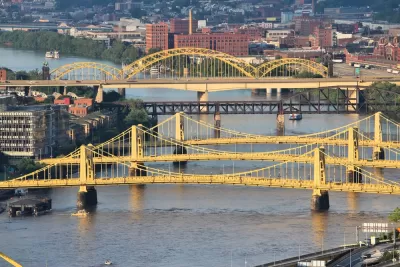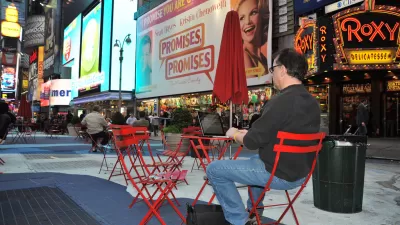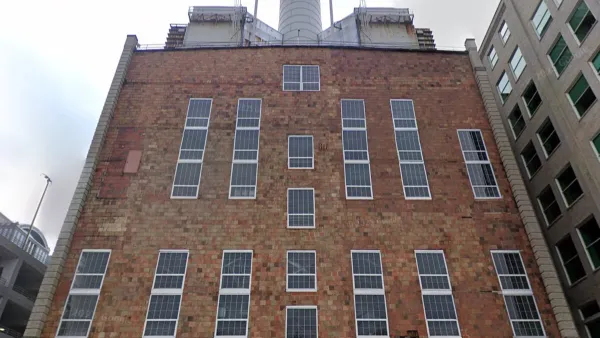Think Columbus, Ohio and Pittsburgh, Pennsylvania.

"It had to happen, but why is it happening now? Secondary tech hubs – outside the orbit of Silicon Valley and New York – are showing undeniable momentum this year," reports Conor Sen.
Sen writes the story after returning from a tour of Columbus, Ohio and Pittsburgh, Pennsylvania with "venture capitalists and team members from the early-stage venture capital firm Bloomberg Beta" for the third round of the Comeback Cities Tour.
A "confluence of forces" has created this momentum for secondary tech cities, according to Sen, such as closing logistical gaps, the spread of urban amenities (the "Brooklyn-ization of America," as described by Sen), lower costs in non-coastal cities, and signals from tech giants.
"As a result, founders and investors are growing more comfortable with companies being founded and scaled outside of traditional hubs," writes Sen.
"It's not clear right now just how transformative or long-lasting this trend could be for secondary hubs. Business people in both cities talked about challenges they share being in nontraditional tech cities: finding workers with startup rather than traditional corporate experience, founders still being somewhat reliant on getting investors in San Francisco or New York to buy into their stories rather than being able to tap local capital, and a lack of successful startup exits or IPOs that would get the local community to have more confidence in startup ecosystems."
FULL STORY: The Year That Big Tech Hubs Got Some Competition

Maui's Vacation Rental Debate Turns Ugly
Verbal attacks, misinformation campaigns and fistfights plague a high-stakes debate to convert thousands of vacation rentals into long-term housing.

Planetizen Federal Action Tracker
A weekly monitor of how Trump’s orders and actions are impacting planners and planning in America.

In Urban Planning, AI Prompting Could be the New Design Thinking
Creativity has long been key to great urban design. What if we see AI as our new creative partner?

King County Supportive Housing Program Offers Hope for Unhoused Residents
The county is taking a ‘Housing First’ approach that prioritizes getting people into housing, then offering wraparound supportive services.

Researchers Use AI to Get Clearer Picture of US Housing
Analysts are using artificial intelligence to supercharge their research by allowing them to comb through data faster. Though these AI tools can be error prone, they save time and housing researchers are optimistic about the future.

Making Shared Micromobility More Inclusive
Cities and shared mobility system operators can do more to include people with disabilities in planning and operations, per a new report.
Urban Design for Planners 1: Software Tools
This six-course series explores essential urban design concepts using open source software and equips planners with the tools they need to participate fully in the urban design process.
Planning for Universal Design
Learn the tools for implementing Universal Design in planning regulations.
planning NEXT
Appalachian Highlands Housing Partners
Mpact (founded as Rail~Volution)
City of Camden Redevelopment Agency
City of Astoria
City of Portland
City of Laramie




























